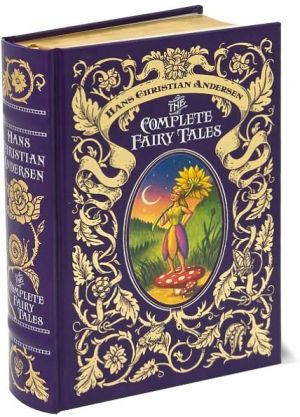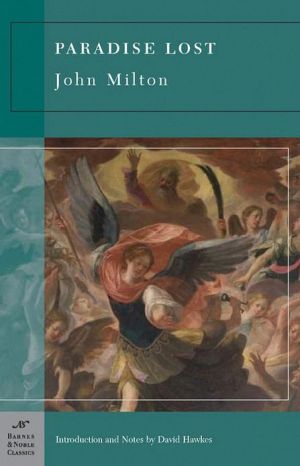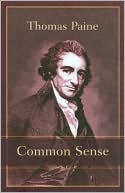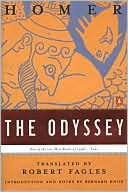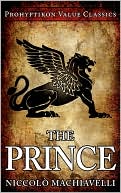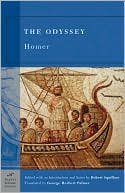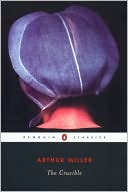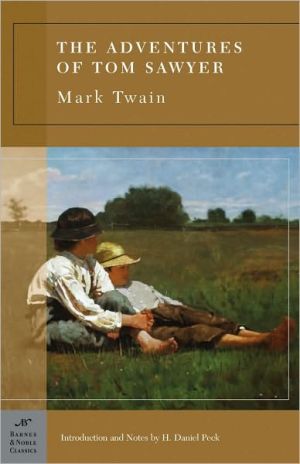The Canterbury Tales: A Retelling
"A romp for the ages" (Vanity Fair)-now with a graphic cover and deluxe packaging\ Renowned novelist, historian, and biographer Peter Ackroyd takes on what is arguably the greatest poem in the English language and presents it in a prose vernacular that makes it accessible to readers while preserving the spirit of the original. A mirror for medieval society, The Canterbury Tales concerns a motley group of pilgrims who meet in a London inn on their way to Canterbury and agree to take part in a...
Search in google:
"A romp for the ages" (Vanity Fair)-now with a graphic cover and deluxe packaging Renowned novelist, historian, and biographer Peter Ackroyd takes on what is arguably the greatest poem in the English language and presents it in a prose vernacular that makes it accessible to readers while preserving the spirit of the original. A mirror for medieval society, The Canterbury Tales concerns a motley group of pilgrims who meet in a London inn on their way to Canterbury and agree to take part in a storytelling competition. Ackroyd's contemporary prose emphasizes the humanity of these characters-as well as explicitly rendering their bawdy humor-yet still masterfully evokes the euphonies and harmonies of Chaucer's verse.The New York Times - Harold BloomRetelling Chaucer in our contemporary prose necessarily is a great loss, yet so rich is Chaucer that enormous value remains in Ackroyd's robust versions of The Canterbury Tales…Ackroyd is happiest and in his best form with Chaucer's sublime ribaldry: the tales told by the Miller, the Reeve and the Summoner.
\ From Barnes & NobleMost of us first encountered Geoffrey Chaucer's Canterbury Tales as required school reading. Now that those days are happily past, we can enjoy this ever-ripe 14th-century classic as the rich diversion it was meant to be. We can't think of anyone more qualified to achieve that worthy purpose than free-range critic/historian/biographer Peter Ackroyd, already the author of a brief biography of Chaucer. Ackroyd's prose version captures the disparate methods and tones of the individual tales, never relinquishing the robustness of this informal storytelling competition. This Canterbury Tales reminds us of what we should have never forgotten: Classics became that way because they grip us.\ \ \ \ \ Harold BloomRetelling Chaucer in our contemporary prose necessarily is a great loss, yet so rich is Chaucer that enormous value remains in Ackroyd's robust versions of The Canterbury Tales…Ackroyd is happiest and in his best form with Chaucer's sublime ribaldry: the tales told by the Miller, the Reeve and the Summoner.\ —The New York Times\ \ \ Publishers WeeklyAckroyd's retelling of Chaucer's classic isn't exactly like the Ethan Hawke'd film version of Hamlet, but it's not altogether different, either. Noting in his introduction that the source material “is as close to a contemporary novel as Wells Cathedral is to an apartment block,” Ackroyd translates the original verse into clean and enjoyable prose that clears up the roadblocks readers could face in tackling the classic. “The Knight's Tale,” the first of 24 stories, sets the pace by removing distracting tics but keeping those that are characteristic, if occasionally cringe-inducing, like the narrator's insistence on lines like, “Well. Enough of this rambling.” The rest of the stories continue in kind, with shorter stories benefiting most from Ackroyd's treatment, though the longer entries tend to... ramble. The tales are a serious undertaking in any translation, and here, through no fault of Ackroyd's work, what is mostly apparent is the absence of the original text, making finishing this an accomplishment that seems diminished, even if the stories themselves prove more readable. (Nov.)\ \ \ \ \ Library JournalNovelist and biographer Ackroyd (London: The Biography) offers a modern English prose "retelling" of The Canterbury Tales designed "to facilitate the experience of the poem." After an informative overview of Chaucer's life and the elements that "conspired to render Chaucer the most representative, as well as the most authoritative, poet of his time," he begins with the general prolog to the Tales and concludes with Chaucer's retractions. The body of the work is made up of 23 tales, starting with The Knight's Tale and ending with The Parson's Prologue. VERDICT Ackroyd's prose is not elegant: the sentences are generally short, with few transitional phrases to link these sentences to form a unified composition. Some of the language does not accurately reflect the flavor of Chaucer's original words. Fans of Ackroyd's previous works may appreciate this effort; other readers may prefer the classic modern English verse translation of Geoffrey Chaucer's great poem by Nevill Coghill.—Kathryn R. Bartelt, Univ. of Evansville Libs., IN\ \ \ \ \ Kirkus ReviewsContinuing his apparent mission to refract the whole of English culture and history through his personal lens, Ackroyd (Thames: The Biography, 2008, etc.) offers an all-prose rendering of Chaucer's mixed-media masterpiece. While Burton Raffel's modern English version of The Canterbury Tales (2008) was unabridged, Ackroyd omits both "The Tale of Melibee" and "The Parson's Tale" on the undoubtedly correct assumption that these "standard narratives of pious exposition" hold little interest for contemporary readers. Dialing down the piety, the author dials up the raunch, freely tossing about the F-bomb and Anglo-Saxon words for various body parts that Chaucer prudently described in Latin. Since "The Wife of Bath's Tale" and "The Miller's Tale," for example, are both decidedly earthy in Middle English, the interpolated obscenities seem unnecessary as well as jarringly anachronistic. And it's anyone's guess why Ackroyd feels obliged redundantly to include the original titles ("Here bigynneth the Squieres Tales," etc.) directly underneath the new ones ("The Squires Tale," etc.); these one-line blasts of antique spelling and diction remind us what we're missing without adding anything in the way of comprehension. The author's other peculiar choice is to occasionally interject first-person comments by the narrator where none exist in the original, such as, "He asked me about myself then-where I had come from, where I had been-but I quickly turned the conversation to another course." There seems to be no reason for these arbitrary elaborations, which muffle the impact of those rare times in the original when Chaucer directly addresses the reader. Such quibbles would perhaps be unfair if Ackroydwere retelling some obscure gem of Old English, but they loom larger with Chaucer because there are many modern versions of The Canterbury Tales. Raffel's rendering captured a lot more of the poetry, while doing as good a job as Ackroyd with the vigorous prose. A not-very-illuminating updating of Chaucer's Tales.\ \

